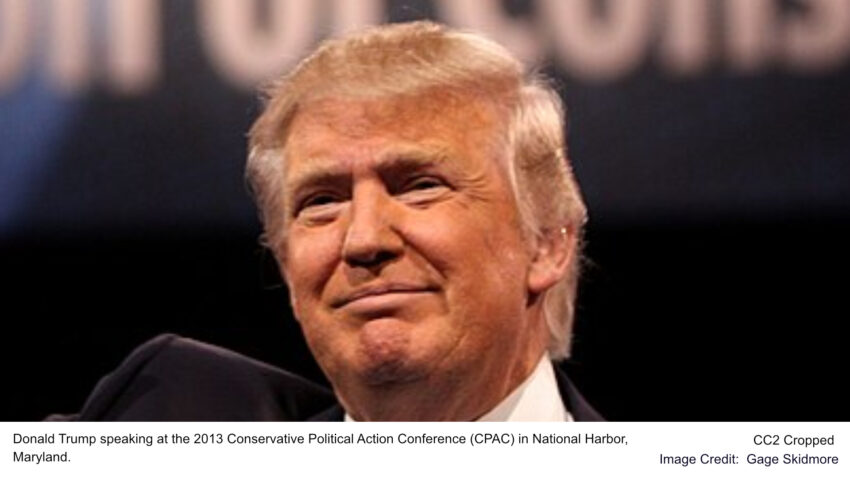Bessent, 62, founded Key Square Capital Management and has a notable history with Soros Fund Management. If confirmed, he would be the first openly gay Treasury Secretary. His nomination aligns with Trump’s vision of ushering in a “new Golden Age” for the United States. Bessent advocates for tackling the national debt, currently at $35.94 trillion. He emphasizes the need to cut government programs and spending while extending provisions of the 2017 Tax Cuts and Jobs Act. These cuts, which may cost between $6 trillion and $10 trillion over a decade, face expiration at the end of 2025.
- Trailblazing Nomination: If confirmed, Ted Bessent would be the first openly gay Treasury Secretary, signaling a notable milestone in U.S. history.
- Economic Priorities: Bessent and Russell Vought emphasize fiscal conservatism, focusing on reducing the national debt, extending the 2017 Tax Cuts, and strategic use of tariffs for foreign policy.
- Balanced Cabinet: Appointments like Rep. Lori Chavez-DeRemer for Labor Secretary demonstrate a nuanced approach, combining fiscal conservatism with support for union rights.
- Strategic Appointments: Trump’s Cabinet picks, including figures from Project 2025, reflect a strong commitment to reshaping economic and government policies during his second term.
Bessent’s relationship with Wall Street might earn him bipartisan support. However, his past as a Democratic donor could draw scrutiny. His views on tariffs, particularly targeting China, align with Trump’s approach. Bessent has expressed that tariffs are a tool to achieve foreign policy goals, such as encouraging allies to increase defense spending.
In addition to Bessent, Trump nominated Russell Vought as Director of the Office of Management and Budget. Vought played a significant role in Project 2025, a conservative blueprint for Trump’s second term. His appointment reflects Trump’s intent to dismantle what he calls “the Deep State” and end “Weaponized Government.” Vought advocates for substantial spending cuts and tax reductions to bring the budget into surplus by 2032.
Trump also appointed Rep. Lori Chavez-DeRemer as Labor Secretary. Known for her support of union rights, Chavez-DeRemer is one of few Republicans backing the PRO Act, which empowers worker organizing campaigns. Her appointment suggests a balanced approach to labor issues in Trump’s administration.
The transition process has been rapid, with Trump announcing most of his Cabinet picks within three weeks of the election. His choices reflect a mix of familiar faces from his previous administration, like Scott Turner for Housing Secretary and new figures such as Dr. Janette Nesheiwat for Surgeon General.
Trump’s appointments indicate a clear direction for economic policy, focusing on reducing national debt, extending tax cuts, and leveraging tariffs as a foreign policy tool. The appointments of Bessent and Vought highlight a commitment to fiscal conservatism and a strategic economic agenda aimed at transforming the U.S. economy.
Trump’s Cabinet Picks Reflect Strategic Economic and Policy Goals
Former President Donald Trump has made swift progress in forming his new administration, with a focus on economic reform and policy shifts. Among the key appointments are Robert Bessent as Treasury Secretary, Russell Vought as Director of the Office of Management and Budget, and Rep. Lori Chavez-DeRemer as Labor Secretary. These choices showcase Trump’s intent to prioritize fiscal conservatism, economic growth, and foreign policy realignment.
Robert Bessent: A Bold Choice for Treasury
Bessent, 62, is poised to become the first openly gay Treasury Secretary if confirmed. A former executive at Soros Fund Management and founder of Key Square Capital Management, Bessent’s experience with Wall Street may garner bipartisan support. His nomination aligns with Trump’s vision of ushering in a “new Golden Age” for the United States.
Bessent has emphasized addressing the national debt, which stands at $35.94 trillion. He advocates for deep cuts to government programs and spending while pushing for the extension of the 2017 Tax Cuts and Jobs Act, slated to expire at the end of 2025. Extending these tax cuts, projected to cost between $6 trillion and $10 trillion over a decade, will likely be a contentious issue in Congress.
On trade, Bessent’s stance on tariffs, particularly toward China, mirrors Trump’s approach. He views tariffs as a lever for achieving foreign policy objectives, such as pressuring allies to increase defense contributions.
Russell Vought: The Fiscal Hawk
Trump’s selection of Russell Vought as Director of the Office of Management and Budget underscores a commitment to conservative fiscal policies. Vought, an architect of Project 2025—a blueprint for Trump’s second term—aims to dismantle the so-called “Deep State” and end “Weaponized Government.”
Vought has proposed drastic spending cuts and tax reductions to balance the federal budget by 2032. His emphasis on fiscal discipline aligns with Trump’s broader goals of reducing government size and controlling the deficit, albeit through controversial measures that may face pushback from Democrats.
Lori Chavez-DeRemer: A Balanced Approach to Labor
Rep. Lori Chavez-DeRemer, Trump’s pick for Labor Secretary, brings a unique perspective to the Cabinet. As one of the few Republicans supporting the PRO Act, which strengthens union rights, Chavez-DeRemer demonstrates a willingness to bridge partisan divides on labor issues. Her support for worker organizing campaigns suggests a more balanced approach to labor policy compared to Trump’s first term.
A Diverse and Strategic Cabinet
Trump’s appointments reflect a mix of familiar faces and new talent, including Scott Turner as Housing Secretary and Dr. Janette Nesheiwat as Surgeon General. The rapid pace of the transition process—finalizing most appointments within three weeks of the election—signals Trump’s determination to implement his agenda quickly.
His Cabinet choices highlight a clear economic strategy centered on reducing the national debt, extending tax cuts, and leveraging tariffs as tools of foreign policy. By nominating Bessent, Vought, and Chavez-DeRemer, Trump sets the stage for a second term defined by fiscal conservatism and transformative policy goals.

